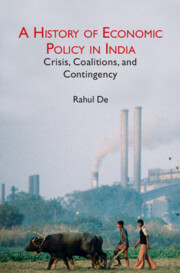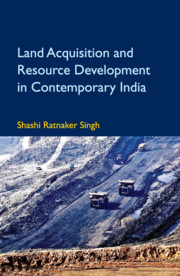A History of Economic Policy in India
Economic Policy in Independent India provides an immersive, accessible yet rigorous understanding of the Indian economy through a political economy analysis of economic policies. It provides a birds-eye view of the politics, context, and ideas that shaped major economic policies in independent India and argues that they are the product of crisis, coalitions, and contingency - not necessarily choice. Each chapter focuses on specific political regimes: Colonial Rule, Jawahar Lal Nehru, Indira Gandhi, liberalisation under coalition governments, the UPA Government, and the NDA Government. The book evaluates how well a government executed its policies based on the economic and political constraints it faced, rather than economic outcomes. Using theories to make sense of the economy, political ideology, historical conditions, and international context, the book's framework provides multiple perspectives and analyses economic policies as an outcome of interactions between dynamics in the economy.
- Simply explains economic terms, concepts, and data to make policy accessible
- Covers policy decisions and history exhaustively from pre-colonial to contemporary times
- Uses evidence from public documents such as party manifesto's, economic surveys, speeches, parliamentary reports, and policy documents
Product details
February 2024Hardback
9781009362672
220 pages
237 × 158 × 17 mm
0.41kg
Available
Table of Contents
- List of Figures and Tables
- Preface
- Acknowledgments
- List of Abbreviations
- Introduction
- 1. The Colonial Economy:
- 1776–947
- 2. The Drive to Industrialize under Nehru's Leadership:
- 1950–1966
- 3. The Turn to Populism under Indira Gandhi:
- 1967–1979
- 4. The Early Liberalization Years:
- 1980–2003
- 5. Maturity of Reforms: Liberalization under UPA Government:
- 2004–14
- 6. Reforms under the NDA Government:
- 2014–2019
- Index.




